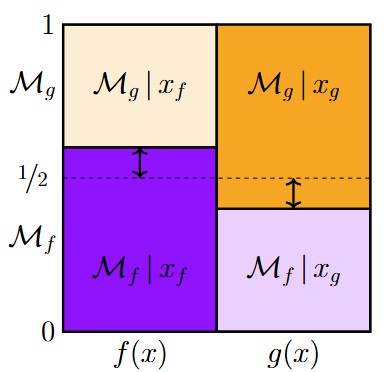With apologies to Bertrand Russell.
John Tukey famously stated that the collective noun for a group of statisticians is a quarrel, and I. J. Good argued that there are at least 46,656 qualitatively different interpretations of Bayesian inference (Good, 1971). With so much Bayesian quarrelling, outsiders may falsely conclude that the field is in disarray. In order to provide a more balanced perspective, here we present a Bayesian decalogue, a list of ten commandments that every Bayesian subscribes to — correction (lest we violate our first commandment): that every Bayesian is likely to subscribe to. The list below is not intended to be comprehensive, and we have tried to steer away from technicalities and to focus instead on the conceptual foundations. In a series of upcoming blog posts we will elaborate on each commandment in turn. Behold our Bayesian decalogue:
- Never assert absolutely
- Use the laws of probability theory to reason under uncertainty
- Be coherent
- Before you give an answer, consider the question
- If you are uncertain about something then you should put a prior on it (after Beyoncé)
- Condition on what you know
- Average across what you do not know
- Update your knowledge exclusively through relative predictive success
- Do not throw away information
- Beware of ad-hockeries
References
Good, I. J. (1971). 46656 varieties of Bayesians. The American Statistician, 25, 62-63. Reprinted in Good Thinking, University of Minnesota Press, 1982, pp. 20-21.
About The Authors

Eric-Jan Wagenmakers
Eric-Jan (EJ) Wagenmakers is professor at the Psychological Methods Group at the University of Amsterdam.

Fabian Dablander
Fabian is a PhD candidate at the Psychological Methods Group of the University of Amsterdam. You can find him on Twitter @fdabl.



